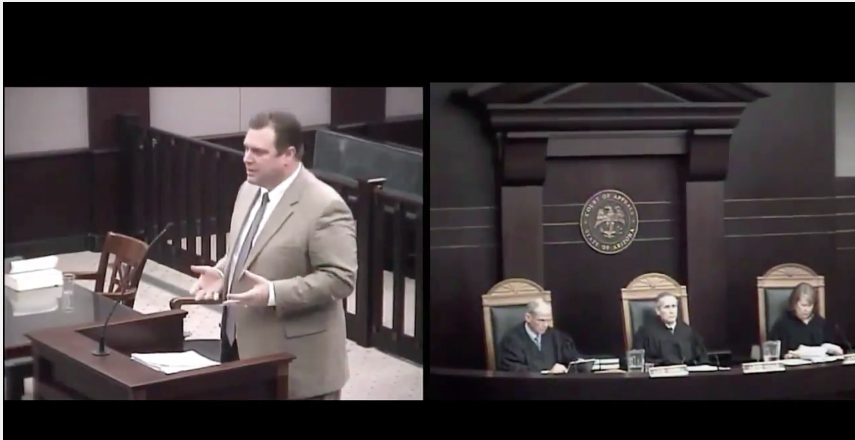Recently I had the privilege of arguing a debt collection case on behalf of a client against Midland Funding. The case was heard by the Arizona Court of Appeals and had to deal with one of the big issues when it comes to junk debt buyer cases – whether Midland Funding can admit documents created by another company into evidence.
In Arizona this is a big issue because the court’s have not received a lot of guidance on this particular issue from the Court of Appeals or the Supreme Court. And it comes up in almost every case.
Here is how it plays out in the typical Midland Funding case – Midland Funding alleges to have purchased and old charged-off debt from the original creditor. For example, Midland often purchases accounts from Chase Bank. But when it comes time for Midland Funding to prove its case at trial Midland doesn’t bring someone from Chase Bank to court to testify about the underlying account, they bring a witness from a sister company known as Midland Credit Management.
So what ends up happening is Midland Funding tries to use an employee of Midland Credit Management to lay foundation and discuss documents that were created by Chase Bank. This becomes a problem because the Midland Credit Management employee doesn’t have any training or knowledge as to how Chase Bank creates and maintains it’s business records.
This would be like have an employee of Wells Fargo come into to court to testify about how Chase Bank creates and maintains its business records. Sure they are both banks, but if the Wells Fargo employee doesn’t know how Chase Bank creates and maintains its business records how is it that they have the required knowledge to authenticate the Chase Bank documents? The short answer is they don’t.
In this case before the Arizona Court of Appeals my client and I won the trial that was held before the Maricopa County Superior Court. Midland Funding decided to appeal the case. The court of appeals allowed oral argument and subsequently issued a ruling that made some very important findings –
(1) The Court found that just because Midland Funding is in possession of records from a third party (like Chase Bank) does not mean that those documents are automatically “business records” for purposes of having the documents admitted into evidence.
(2) There must be strong indicia of reliability – i.e. the documents must be trustworthy.
(3) The mere fact that credit card companies are subject to governmental regulation does not mean that their account statements are automatically admissible without further foundation.
I know that this is getting into the weeds a bit on these cases, but this ruling by the Arizona Court of Appeals really provided some good information.
It is important to note that the court issued this ruling as a “Memorandum Decision” meaning that it does not create binding precedent on other courts within the state of Arizona and can only be cited to for persuasive value, but nonetheless it does provide some valuable insight into how the court is starting to view these cases. (Also, we are currently asking the Court of Appeals to reconsider making this a published decision that can be used as precedent in future cases).
You can watch John Skiba’s argument before the Court below:
Schedule a Free Consultation!
 John Skiba, Esq.
John Skiba, Esq.
We offer a free consultation to discuss your debt problem and help you put together a game plan to eliminate your debt once and for all. Give us a call at (480) 420-4028

